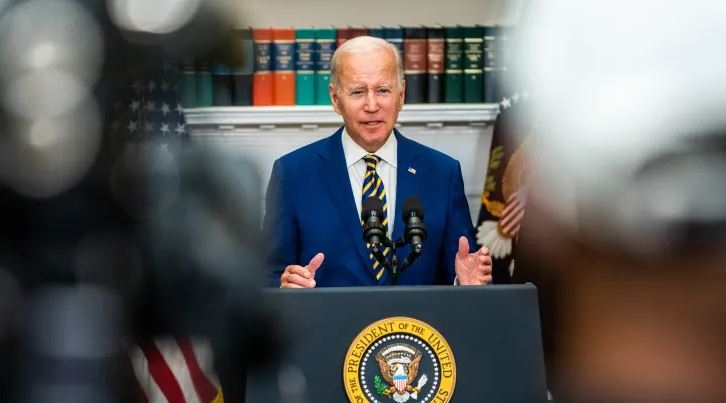Wednesday, the Biden administration petitioned the Supreme Court to defend its decision to cancel hundreds of billions of dollars in student loan debt for tens of millions of Americans, contending that it acted within its executive power and did not need fresh legislative authorisation.
In a brief submitted with the justices, the Justice Department dismissed legal arguments raised by six Republican-led states and said that the states had no legal standing to dispute the decision in court.
The administration’s answer to the challenges was issued one month after the court decided to hear the case and accelerated the case’s schedule. The justices intend to hear oral arguments in February and have left in place an injunction granted by a lower court prohibiting the administration from continuing with the programme until the legal issues have been addressed.
The initiative would erase up to $20,000 in debt for up to 40 million debtors with annual incomes of less than $125,000. More than 16 million prospective recipients have already been authorised for the relief if the court permits the scheme to go through, and millions more have applied. The government said that approximately ninety percent of the benefits would go to borrowers who had completed their education and earned less than $75,000 annually.
President Biden’s decision to grant the pardon was among the most far-reaching expenditure choices ever made by a president without special legislative approval. The neutral Congressional Budget Office estimates its cost to be around $400 billion over 30 years, with the majority of its economic consequences occurring during the following decade.
Arkansas, Iowa, Kansas, Missouri, Nebraska, and South Carolina, the states appealing the decision, contend that the administration lacked the authority to sanction such a broad action on its own and that it would deprive the states of future tax money.
Under a Covid-19 relief package launched by Donald J. Trump in March 2020 and sustained by Mr. Biden, the majority of debtors have been exempt from student loan payments for over three years. The government of Mr. Biden has prolonged the suspension of payments until September.
The court brief submitted by the Biden team on Wednesday said that the pandemic also offered grounds for the debt cancellation scheme, citing the Heroes Act of 2003, which gives the secretary of education the ability to award relief during times of war or national disaster.
According to the brief, Education Secretary Miguel A. Cardona’s actions are “comfortably consistent with the plain language of the statute.”
Additionally, the brief contested the states’ authority to sue over the programme. The U.S. Court of Appeals for the Eighth Circuit, which issued the injunction temporarily blocking the forgiveness awaiting legal settlement, focused on the potential for injury to the Missouri Higher Education Loan Authority, a nonprofit organisation that provides federal loan servicing.
However, the administration maintained in its brief that the power is distinct from Missouri and that any potential impact is largely hypothetical. The brief also said that two borrowers who filed a lawsuit in Texas on behalf of a special interest organisation lacked standing to challenge the programme.
The student loan package may have helped Democrats in the midterm elections in November. While voters as a whole were largely divided on the issue, with 50 percent supporting it and 47 percent opposing it, according to CNN exit polls, the programme had far more support among younger voters, who broke decisively for the Democrats.

